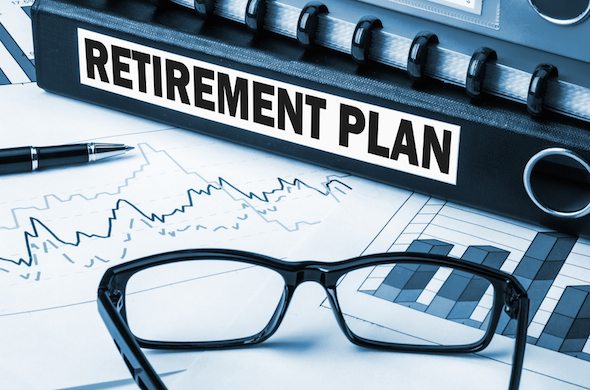An emergency fund can go a long way in keeping you from running out of cash when you lose your job or you’re forced to cover the cost of an emergency expense. Once you retire, you may think that you no longer need a rainy day fund, but that’s not necessarily the case. Here are five reasons why having an emergency fund can come in handy after you decide to leave the workforce.
Find out now: How much do I need to save for retirement?
1. The Market’s Down
Financial markets move in cycles and there’s nothing more discouraging than watching the value of your portfolio plummet. As you get older, you have less time to ride out market fluctuations, which means that you may be forced to withdraw money from your retirement accounts if your investments aren’t performing well.
An emergency fund can give you a financial cushion. If you’ve got a hefty chunk of cash it could cover your day-to-day expenses while you’re waiting for the value of your stocks to rise.
2. Healthcare Costs Are Higher Than You Expected

You become eligible for Medicare once you turn 65, but not all of your medical expenses will be covered. If you’ve got Medicare Part A and Part B, for instance, you might be responsible for paying monthly premiums for both kinds of coverage, as well as having a deductible. With a Medicare Advantage plan, you might be on the hook for copayments and coinsurance too.
While most Medicare Advantage plans cover prescription drugs, not all of them do. If you don’t want to drain your nest egg in order to pay for healthcare expenses and you don’t have money stashed away in a health savings account (HSA), it might be a good idea to have an emergency fund.
3. You Don’t Have Enough Homeowners Insurance or Car Insurance
If your home or cars are paid off, you might assume that you can reduce your insurance coverage. But that could be a big mistake if disaster strikes. If you get into an accident, for example, you might have to pay a lot of money out-of-pocket in order to repair your car. Likewise, you could find yourself in a financial pickle if your home is damaged by a flood and your homeowners insurance policy doesn’t cover water damage.
In those instances, tapping into an emergency fund would probably be better than borrowing money from your 401(k).
Check out our 401(k) calculator.
4. You’ve Got Financially Needy Kids
Boomerang kids can wreak havoc on your finances. If you’ve got adult children who decide to move back home or kids who consistently ask you for money, you’ve got two options. One, you can cut them off completely. If you’re not interested in doing that, you could withdraw savings from your retirement accounts to support your children.
If you have an emergency fund, you could use the money you’ve saved instead of jeopardizing your retirement or cutting off your son or daughter.
5. You Want a Hedge Against Inflation
Inflation can severely erode the value of your retirement savings over time. You could retire with $1 million in savings but as time goes by, you might need to withdraw more money each year to cover the cost of the same expenses. Having emergency cash can prevent you from having to primarily rely on the money from your retirement accounts to make purchases or pay bills.
Related Article: How Should Inflation Affect My Investment Strategy?
How Much Should Retirees Save for Emergencies?

It’s a good idea to sock away as much money as you can in your emergency fund after you retire. A general rule of thumb says that you should have enough money to cover expenses for at least three to six months. But you might need to save more than that if you have a lot of financial obligations and you’re worried about running out of money in the future.
A financial advisor can help you ensure you’re set up for a successful retirement. Your advisor can help you figure out how much you should be saving to your retirement account as well as your emergency fund based on your financial situation and the factors mentioned above. A matching tool like SmartAsset’s can help you find a financial advisor to work with to meet your needs. First you’ll answer a series of questions about your financial situation and goals. Then the program will narrow down your options to up to three suitable advisors in your area. You can then read their profiles to learn more about them, interview them on the phone or in person and choose who to work with in the future. This allows you to find a good fit while the program does much of the hard work for you.
Photo credit: ©iStock.com/cacaroot, ©iStock.com/Steve Debenport, ©iStock.com/monkeybusinessimages
